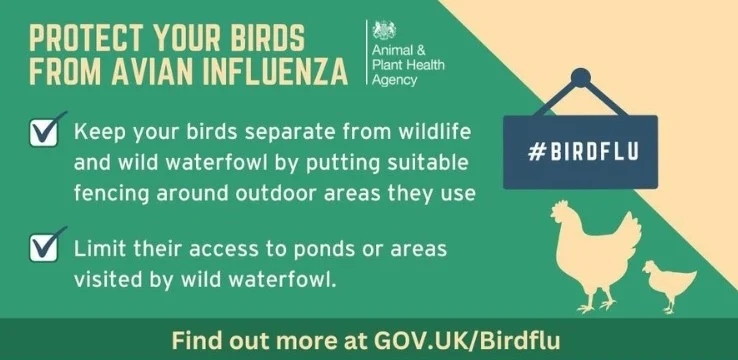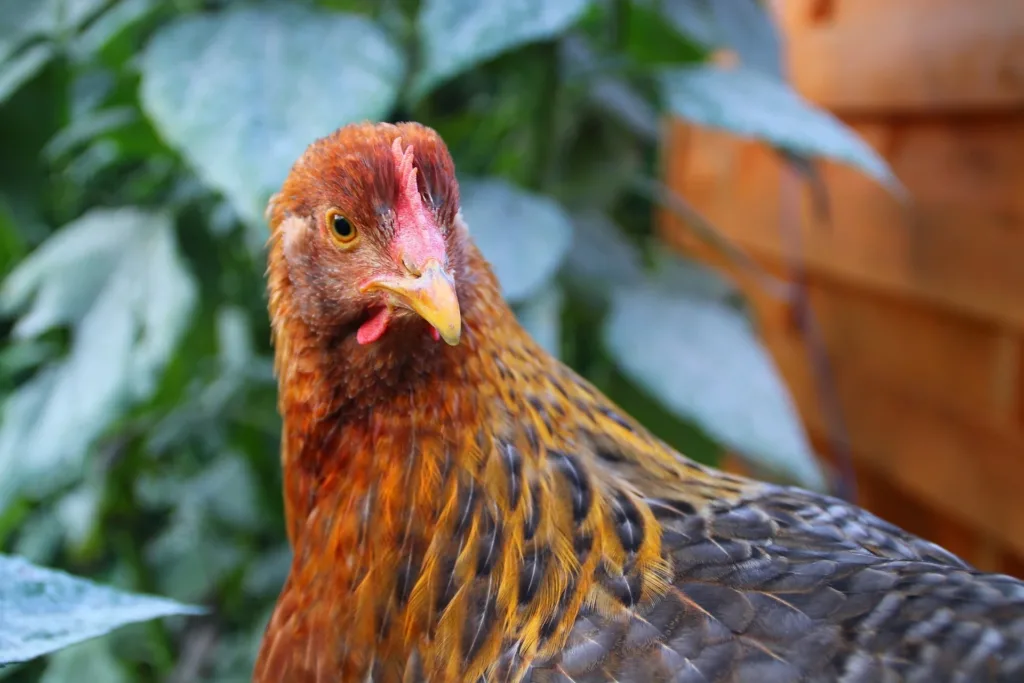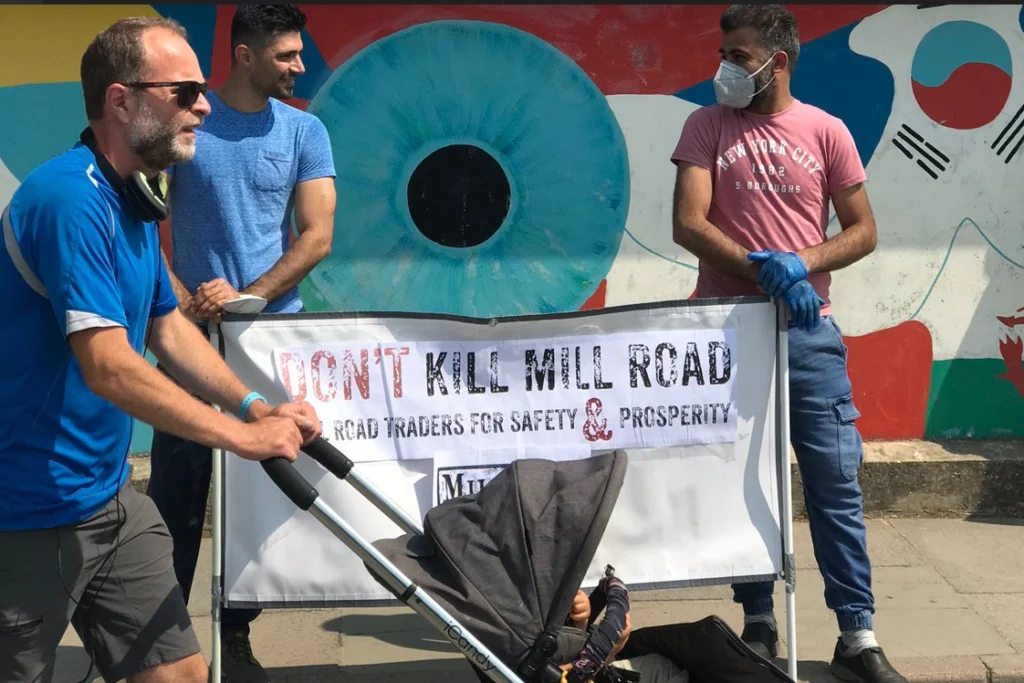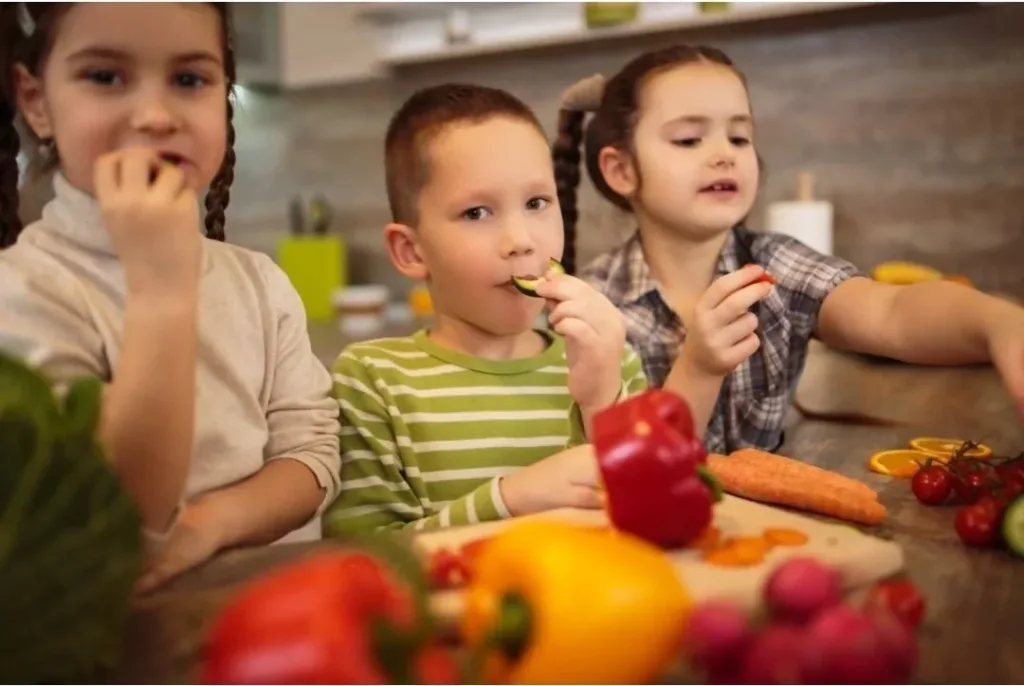Bird flu has hit fresh parts of Cambridgeshire with outbreaks confirmed in the Fenland town of March and in Somersham, nine miles east of Huntingdon.
Cases were confirmed at both locations on October 31.
Declaration orders are in place bringing in additional rules for those who keep birds within 3km of the infected site in March and within 10km of the infected site at Somersham.
Trading Standards Officers will be calling at homes within the March and Somersham disease control zones next week to ascertain if birds are kept by those households.
If they are, the information will be referred to APHA for veterinary assessment to determine if a health check on the birds is required. Trading Standards is also responsible for enforcement of the rules within the Declaration Order.
These rules are there to protect not only livelihoods and valuable commercial bird stocks, but also much-loved pets, and with such a virulent strain, it is vital bird keepers adhere to them.
Anyone with concerns about breaches should report the information to Cambridgeshire County Council’s customer services team on 0345 045 5206.

Road signs will also be erected by Cambridgeshire County Council on the main entry points into the March and Somersham disease control zones on behalf of the APHA to make bird transporters aware they are entering an animal disease control zone.
Mandatory housing measures for all poultry and captive birds are to be introduced to all areas of England from 00:01 on Monday 7 November, following a decision by the United Kingdom’s Chief Veterinary Officer.
The housing measures legally require all bird keepers to keep their birds indoors and to follow stringent biosecurity measures to help protect their flocks from the disease, regardless of type or size.
The compulsory housing measure follows over 80 confirmed cases of Bird Flu across the UK since the beginning of October, three of which have been in Cambridgeshire.
The full details of these requirements can be accessed on the GOV.UK website.
Bird keepers with 50 or more birds must register with the Animal and Plant Health Agency (APHA), but APHA are actively encouraging all bird keepers to register, even if they have less than 50 birds, as it enables them to keep you up to date with Avian Influenza developments.
APHA are also encouraging all bird keepers to view their ‘Stop the Spread’ webinars and have made extensive advice and guidance available for bird keepers on the GOV.UK website.
Cambridgeshire County Council has a role in supporting DEFRA and the APHA as part of the national animal disease contingency plan, with its Trading Standards team responsible for identifying all captive birds within the Protection Zone.
Peter Gell, Assistant Director Regulatory Services, said: “I would encourage all poultry keepers to familiarise themselves with, and do their utmost to comply with, all restrictions now in place.
“We are a rural county, blessed with a wide range of commercial bird keepers. Their livelihoods and health of their flocks depend on all bird keepers – large and small – doing their bit to prevent the further spread of this disease.
“Check your birds frequently for symptoms of Bird Flu – know the tell-tale signs and immediately report any ill-health to your veterinarian.
“If you suspect Bird Flu you should contact the DEFRA rural services helpline on 03000 200 301.”
The United Kingdom’s Chief Veterinary Officer Christine Middlemiss said: “We are now facing this year, the largest ever outbreak of bird flu and are seeing rapid escalation in the number of cases on commercial farms and in backyard birds across England.
“The risk of kept birds being exposed to disease has reached a point where it is now necessary for all birds to be housed until further notice.
“Scrupulous biosecurity and separating flocks in all ways from wild birds remain the best form of defence.
“Whether you keep just a few birds or thousands, from Monday 7 November onwards you must keep yours indoors.
“This decision has not been taken lightly but is the best way to protect your birds from this highly infectious disease.”
In terms of the risk to public health, the UK Health Security Agency (UKHSA) has said that avian influenza is primarily a disease of birds and the risk to the general public’s health is very low. Nevertheless, the public are being asked not to touch dead wild birds but should report them to DEFRA by calling 03459 33 55 77.
Furthermore, the Food Standards Agency has said that on the basis of the current scientific evidence, avian influenza poses a very low food safety risk for UK consumers. Cooked poultry and poultry products, including eggs, are safe to eat.
For the latest information about Bird Flu, including symptoms, how to report sick birds and the latest control measures visit the GOV.UK website.






















